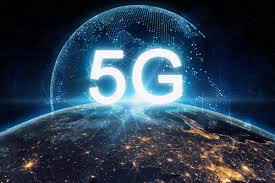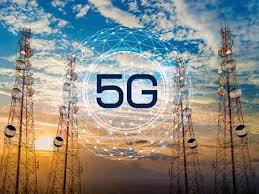
Title: The Advent of 5G Technology: A Game Changer in the Digital Era
Introduction:
The fifth-generation (5G) technology is the latest addition to the world of telecommunications. It is a revolutionary technology that promises to bring faster internet speeds, low latenc y, and massive device connectivity. The 5G technology is not just an upgrade of the existing 4G technology; it is a completely new and transformative technology that will bring new opportunities and possibilities in the digital era. This document will explore the potential of 5G technology and how it will transform the digital world.
y, and massive device connectivity. The 5G technology is not just an upgrade of the existing 4G technology; it is a completely new and transformative technology that will bring new opportunities and possibilities in the digital era. This document will explore the potential of 5G technology and how it will transform the digital world.
Overview of 5G Technology:
The 5G technology promises to deliver faster internet speeds, up to 10 gigabits per second (Gbps), which is 100 times faster than the current 4G technology. It will also provide lower latency, which means less delay in data transfer. The 5G technology will enable massive device connectivity, allowing up to 1 million devices per square kilometer, which is 100 times more than the current 4G technology. This will pave the way for the Internet of Things (IoT), where every device can be connected to the internet.
Benefits of 5G Technology:
The 5G technology will bring many benefits to various sectors, including healthcare, transportation, and education. In healthcare, the 5G technology will enable remote surgeries, real-time monitoring of patients, and improved healthcare delivery. In transportation, the 5G technology will enable self-driving cars, real-time traffic updates, and improved transportation efficiency. In education, the 5G technology will enable virtual classrooms, remote learning, and personalized education.
Challenges of 5G Technology:
The implementation of 5G technology also poses various challenges, including the high cost of infrastructure, network security, and privacy concerns. The 5G technology will require a significant investment in infrastructure, including the deployment of new base stations and fiber-optic cables. Network security and privacy concerns will also be a significant challenge, as the massive connectivity of devices will increase the risk of cyber attacks.
Conclusion:
The 5G technology is a game-changer in the digital era, promising to bring faster internet speeds, low latency, and massive device connectivity. The technology will enable new opportunities and possibilities in various sectors, including healthcare, transportation, and education. However, the implementation of the 5G technology will pose various challenges, including the high cost of infrastructure, network security, and privacy concerns. It is crucial to address these challenges and ensure the safe and effective deployment of 5G technology.
0 comments
Be the first to comment!
This post is waiting for your feedback.
Share your thoughts and join the conversation.
